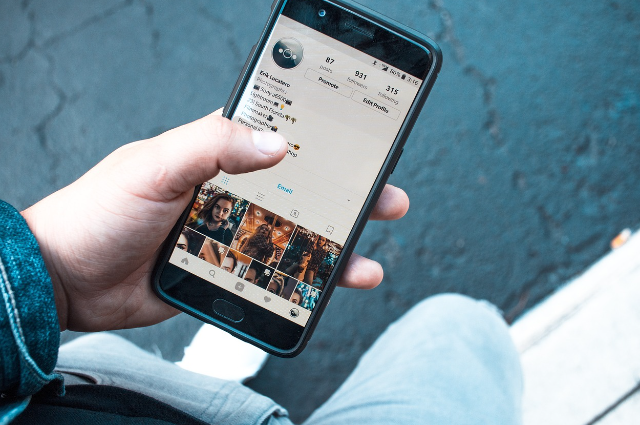
You’ve been there. It’s eleven PM, and you’ve fallen into the digital rabbit hole. You open TikTok or Instagram Reels for a "quick look," and an hour later, you know the entirety about the "mob spouse aesthetic," have identified yourself with a vitamin deficiency via a well-being influencer, and are satisfied you need to begin making sourdough starter in a minimalist beige kitchen. The videos feel uncannily particular, as though the app has studied your diary. It is aware of your fleeting mind, your secret insecurities, and your budding pursuits earlier than you do. The set of rules is good. Too true. But what if it’s doing more than just showing you what you want? What if it’s telling you who to be?
This is the unnerving truth of the current content set of rules. We used to consider it as a reflection, reflecting our tastes, returned to us. But it’s now not a passive reflect; it is an energetic sculptor. We are residing within the age of the identification feedback loop, a virtual vortex where the road between self-discovery and algorithmic tasks has come to be dangerously blurred. For a generation raised on the endless scroll, personality is no longer just something you develop via existence, revel in; it's something curated for you, one 30-2nd video at a time.
Here’s how the loop works. It starts innocently. You watch multiple videos approximately Stoic philosophy or maybe a "day inside the lifestyles" of an "easy female." The set of rules, a hyper-attentive virtual butler, takes note. "Ah," it thinks, "an ability hobby." It then serves you some other video on a comparable topic, just to test the waters. You like it. You might even comment. Ping. The remark is registered. Before you understand it, your complete 'For You' Page is a meticulously crafted shrine to this single concept. You’re bombarded with Marcus Aurelius rates, tutorials on the right slicked-lower back bun, and advertisements for Stanley cups and overpriced impartial-toned activewear.
What happens next is the crucial component. Immersed in this digital ecosystem, your mind begins to connect the dots. You see lots of other human beings praised for embodying this aesthetic. You see community, belonging, and a pre-packaged identification that offers a shortcut via the messy, complicated method of figuring yourself out. So, you start to undertake the traits. You purchase the ebook, you attempt the coiffure, you start using the lingo. You start to perform the persona that the algorithm has so helpfully laid out for you. The algorithm, in flip, sees you attractive even more deeply, and doubles down, feeding you increasingly of the same. The loop is whole. The reflection inside the mirror has emerged as the actual issue.
This isn't pretty much harmless micro-developments like "cottagecore" or "darkish academia." This feedback loop has profound implications for the way younger people develop their core beliefs. A fleeting curiosity about a political trouble may be algorithmically amplified right into a rigid ideology. Surrounded by means of a constant movement of content that confirms a unmarried point of view, with no exposure to nuanced debate or opposing arguments, a person may be nudged in addition and similarly in the same direction towards extremism. The algorithm doesn’t care about approximately truth or balanced perspectives; it cares about engagement. And nothing is more attractive than righteous reality.
The structures are designed to make the most of our essential human need for identification and belonging. For Gen Z and Gen Alpha, who are navigating the already-turbulent waters of formative years, these algorithmic niches provide an experience of balance. Being a "book Tok woman" or a "health club bro" provides a script, a fancy dress, and a network. It simplifies the arena. But in doing so, it additionally flattens the character. True identity is messy, contradictory, and evolves over the years. It’s solid within the unpredictable classroom of actual-life interplay, trial and errors, and actual, uncurated curiosity. The identification remarks loop rob us of this adventure, changing organic increase with a paint-by-numbers personality.
So, how do you destroy loose? The first step is focus. Recognize the 'For You' Page for what it is: not a reflection of your soul, but a sophisticated advertising tool designed to seize and hold your attention. Start working towards conscious intake. Ask yourself: "Do I certainly like this, or have I just visible it 1000 times?"
Actively combat against. Use the "Not Interested" button like a weapon in opposition to homogenization. Go from your manner to look for and observe creators who are absolutely extraordinary from what the algorithm generally shows you. If your feed is all one issue, deliberately look for its opposite. Force the algorithm to peer at you because the complex, multifaceted human you are, no longer the simplified consumer profile it wishes you to be.
Most importantly, sign off. The maximum true components of you might not be observed within the reflection of a black replicate. Go be part of a club, examine an ability, examine an ebook you were not recommended, and talk to humans whose lives look nothing like the ones on your display screen. Your personality isn't a product to be assembled from an algorithmic blueprint. It is a story, and you're the only one who must be maintaining the pen.
